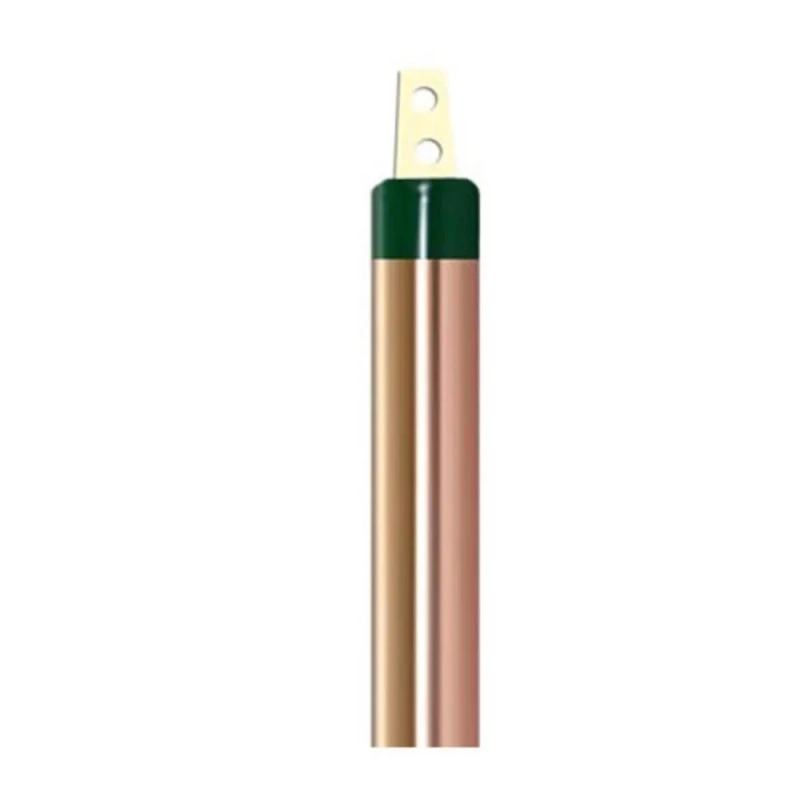The Pure Copper Earthing Electrode is critical in maintaining the safety and proper operation of electrical systems. Grounding is an important component of any electrical system because it helps direct excess electrical energy to the earth, minimizing electrical shocks, equipment damage, and fire threats. Pure copper earthing electrode are generally recognized as a dependable alternative for successful grounding due to their outstanding conductivity and corrosion resistance.
Types of Earthing Electrodes
1 Plate Electrodes
Plate electrodes are flat conductors made of copper that are buried in the ground. They offer a large surface area for better contact with the surrounding soil, ensuring low resistance to current flow. Plate electrodes are commonly used in residential, commercial, and industrial applications.
2 Rod Electrodes
Rod electrodes are cylindrical rods made of copper that are driven vertically into the ground. They are suitable for areas with rocky or hard soil conditions where plate electrodes may not be feasible. Rod electrodes are widely used in lightning protection systems and high-current installations.
3 Pipe Electrodes
Pipe electrodes are hollow copper pipes that are installed vertically into the ground. They provide excellent conductivity and are often utilized in areas with corrosive soil conditions. Pipe electrodes are commonly employed in telecommunication towers, power plants, and substations.
4 Strip Electrodes
Strip electrodes are long and narrow copper strips buried horizontally in the ground. They are ideal for areas with limited space or shallow soil depth. Strip electrodes are frequently used in urban environments, such as residential buildings and commercial complexes.
Copper earthing electrodes have various advantages over electrodes made of other materials such as galvanized steel or aluminum. Copper's high conductivity, corrosion resistance, and longevity make it a popular choice for dependable earthing systems. Galvanized steel electrodes corrode, but aluminum electrodes have a higher resistance than copper, resulting in less efficient grounding. Contact Pure Copper Earthing Electrode Manufacturers to ensure safe electrical system which require less maintenance.


